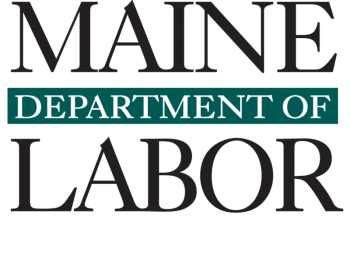Maine’s 2022 Employer Tax Schedule to remain level
AUGUSTA – Despite unprecedented pressure on the unemployment compensation system since the beginning of the pandemic, the Maine Department of Labor announced November 17, 2021 that the 2022 employer tax schedule, which supports the state’s unemployment trust fund, will remain stable at Schedule B. Schedule B is the second lowest unemployment tax schedule under the law.
According to MDOL, this news is the direct result of Governor Janet Mills’ infusion of $382 million in Federal funding into Maine’s Unemployment Trust Fund, including $294 million in CARES Act Coronavirus Relief Funds (CRF) in 2020, $80 million through the Maine Jobs and Recovery Plan in October 2021, and an additional $8 million in CARES Act funding in October 2021. Without these investments, the Department estimates that employer taxes may have more than doubled in 2021 and increased by 56 percent in 2022.
“Thanks to the Governor’s good fiscal management, the unemployment trust fund has remained solvent throughout the pandemic, unlike many other states across the nation that have had to borrow billions of dollars from the Federal government during the pandemic,” said MDOL. “Those states have to pay back the Federal government with interest. As of November 10, there are 13 states who have had to borrow.”
“With Maine’s small businesses already facing unprecedented challenges because of the pandemic, I knew it was critical to invest in the Unemployment Trust Fund to reduce the possibility of substantial tax increases,” said Governor Janet Mills. “As a result of our investments and responsible fiscal management, the tax schedule will remain the same and the Trust Fund will stay healthy and solvent unlike in many other states. We took these actions to protect small businesses and help them keep their doors open and their workers employed as our economy recovers. My Administration will continue to do everything we can to support Maine’s small businesses.”
“During the pandemic, unemployment insurance fulfilled its role as a critical economic stabilizer for families, communities, and businesses,” said Commissioner Laura Fortman. “The Governor’s actions ensure the continuation of a solvent trust fund and prevent employer taxes from increasing by 56 percent in 2022.”
“The Maine State Chamber of Commerce appreciates the investments by the Mills Administration to help mitigate the impact of the economic burdens faced by employers as a result of the COVID-19 pandemic,” said Dana Connors, president of the Maine State Chamber. “During this public health crisis, our Unemployment Insurance System has been pushed like never before, but our situation today could have been much worse. We appreciate the Governor’s directive to mitigate even higher costs, and we will continue to work with the Mills Administration to help support Maine’s businesses in these challenging times.”
State unemployment insurance is paid to eligible Maine people through the state unemployment trust fund, which is funded by employers through unemployment taxes. Unemployment taxes are assessed on the first $12,000 in wages on each employee during the calendar year. Approximately 48,000 employers in Maine pay into the unemployment trust fund based on the statutory tax rates that take into account each employer’s experience rating based on their non-COVID unemployment history, according to the release.
Under Schedule B, the average tax per employee is expected to be $268.80 per year. The average increase is $15.60 per employee per year. Each employer’s experience rating is unique, therefore the tax change will vary by employer.
MDOL has paid out over $2.5 billion in benefits between March 15, 2020 and November 6, 2021, with more than $600 million coming from state funds. As of October 2021, the average weekly benefit for the regular state unemployment program was approximately $328.
The balance of the trust fund is updated once a month at https://www.maine.gov/labor/cwri/ui.html.


























